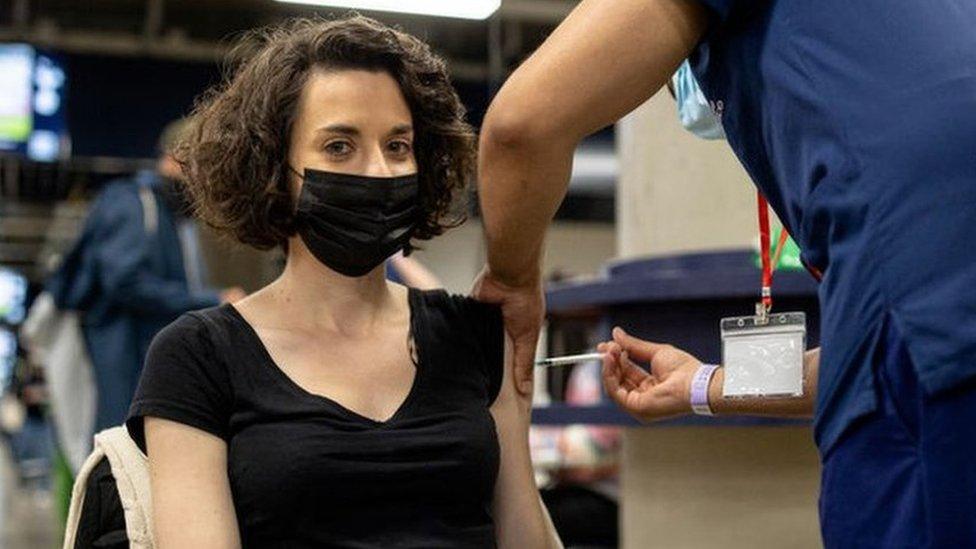EU and AstraZeneca reach deal to end vaccine row
- Published
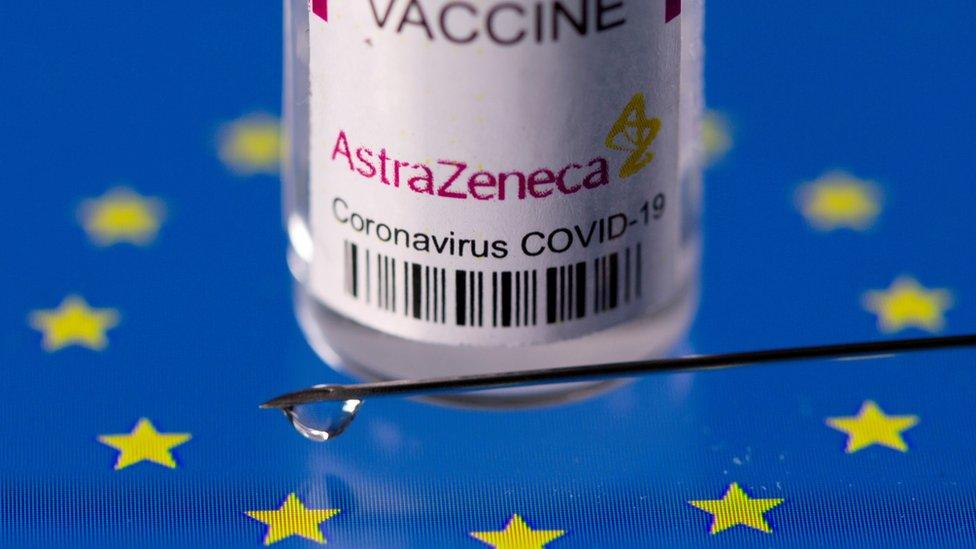
The EU and UK-Swedish drug-maker AstraZeneca have settled a row over a shortfall in coronavirus vaccines that affected the European rollout earlier this year.
AstraZeneca has agreed to deliver 200 million doses of its vaccine, which had been promised under a contract, to the EU by the end of March 2022.
The deal puts an end to the EU's pending action in the Belgian courts.
The EU said this week that 70% of adults had been double vaccinated.
Earlier this year AstraZeneca angered European Commission officials when it said it could only deliver a fraction of the doses agreed for the first three months of 2021.
The bitter dispute overshadowed the initial weeks of the vaccine rollout across the EU's 27 countries. The Commission accused the company of breaking an August 2020 advanced purchase deal while AstraZeneca hit back arguing that the contract only required its "best effort" to deliver millions of vaccine doses on time.
AstraZeneca's Covid vaccine, now known as Vaxzevria, has also been hit by age restrictions imposed by several EU countries because of very rare side effects. The EU's medicines agency made clear that the benefits outweighed the risks for all adult groups.
The delivery row was set to reach the Brussels courts at the end of September and Rudd Dobber of AstraZeneca said he was "very pleased that we have been able to reach a common understanding" with the Commission.
EU Health Commissioner Stella Kyriakides said there were still "significant differences in vaccination rates between our member states, and the continued availability of vaccines, including AstraZeneca's, remains crucial".
Under the settlement the two sides agreed that another 60 million doses would be delivered by the end of this month, a further 75 million by the end of December and a final 65 million by the end of March 2022.

A row tangled up in Brexit

Today's agreement seems to resolve an acrimonious dispute that erupted at the start of the year just after the UK had fully and finally left the EU's rules and regulations.
At first, the row over the detailed legal contract wasn't directly linked to Brexit, but soon became part of it, with the European Commission seeking - for a time - to override part of the deal on Northern Ireland because of its perceived unlawful treatment.
Now the language on both sides is constructive and conciliatory with AstraZeneca promising publicly a partial refund if its impending deliveries to EU countries are late. There will be a 10% rebate for a one-month delay, 25% for two months and 40% for three months.

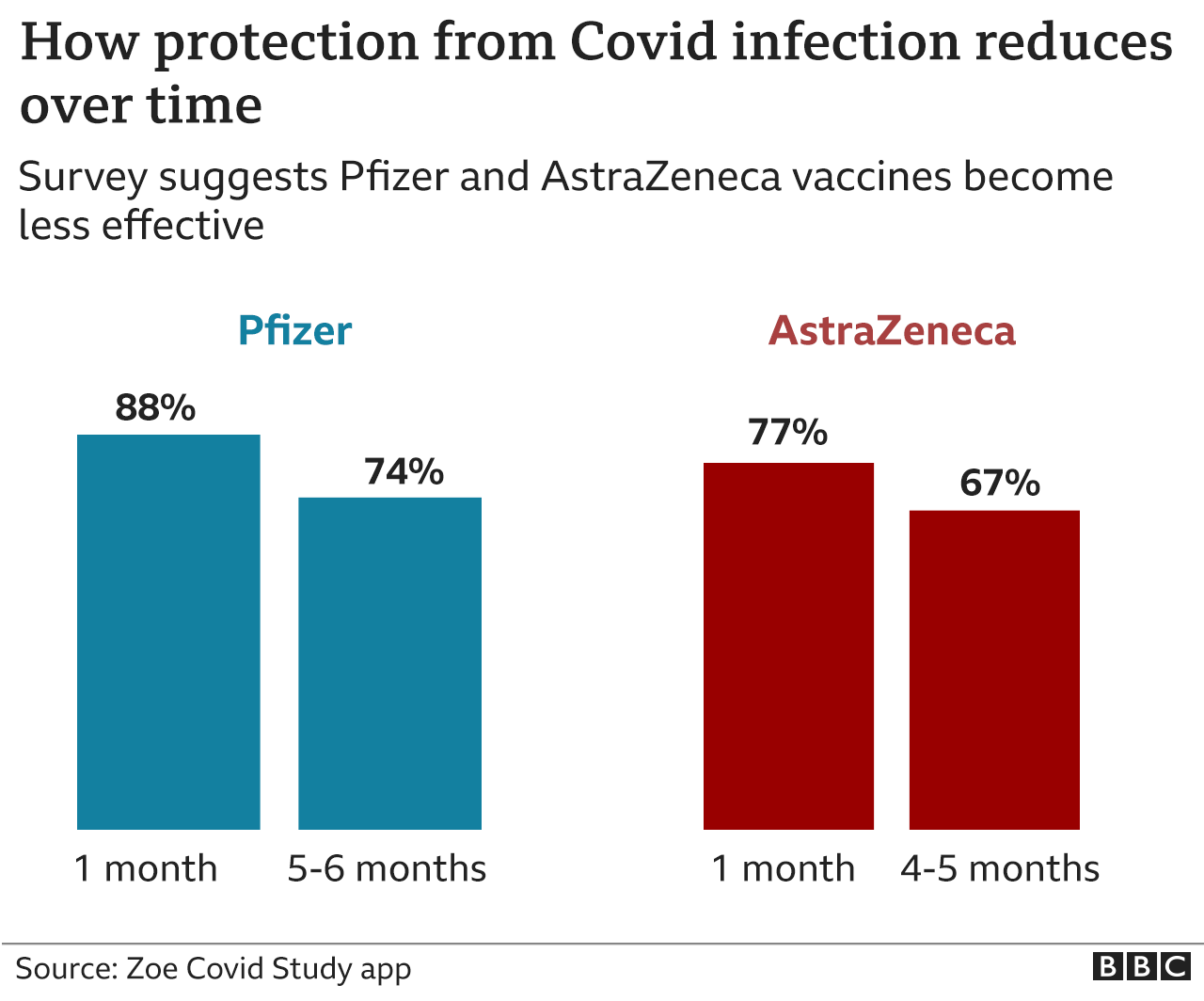
Related topics
- Published7 May 2021
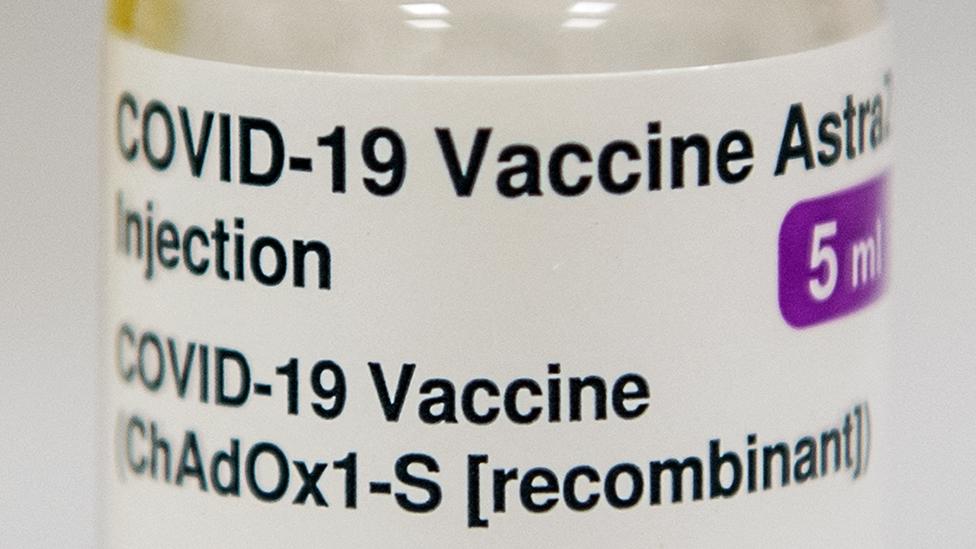
- Published30 March 2021
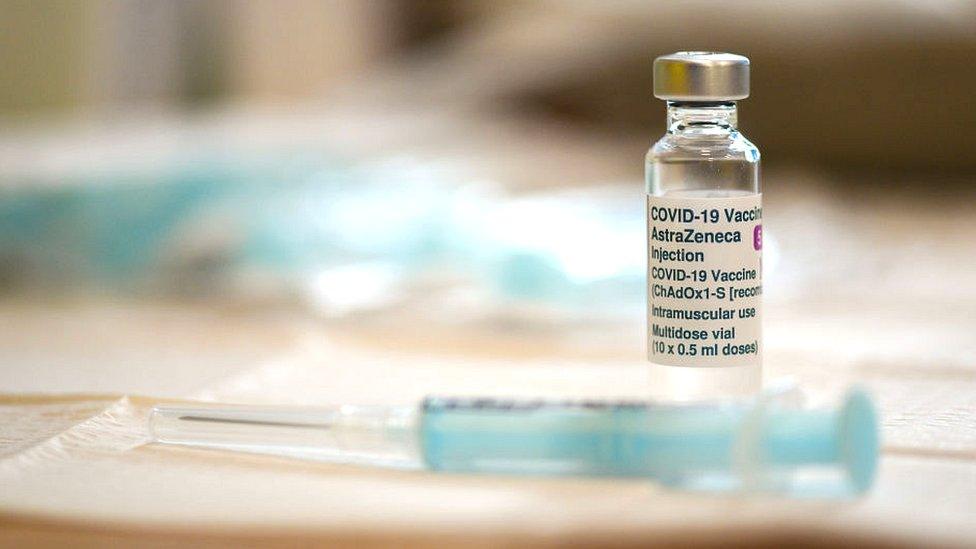
- Published25 August 2021
